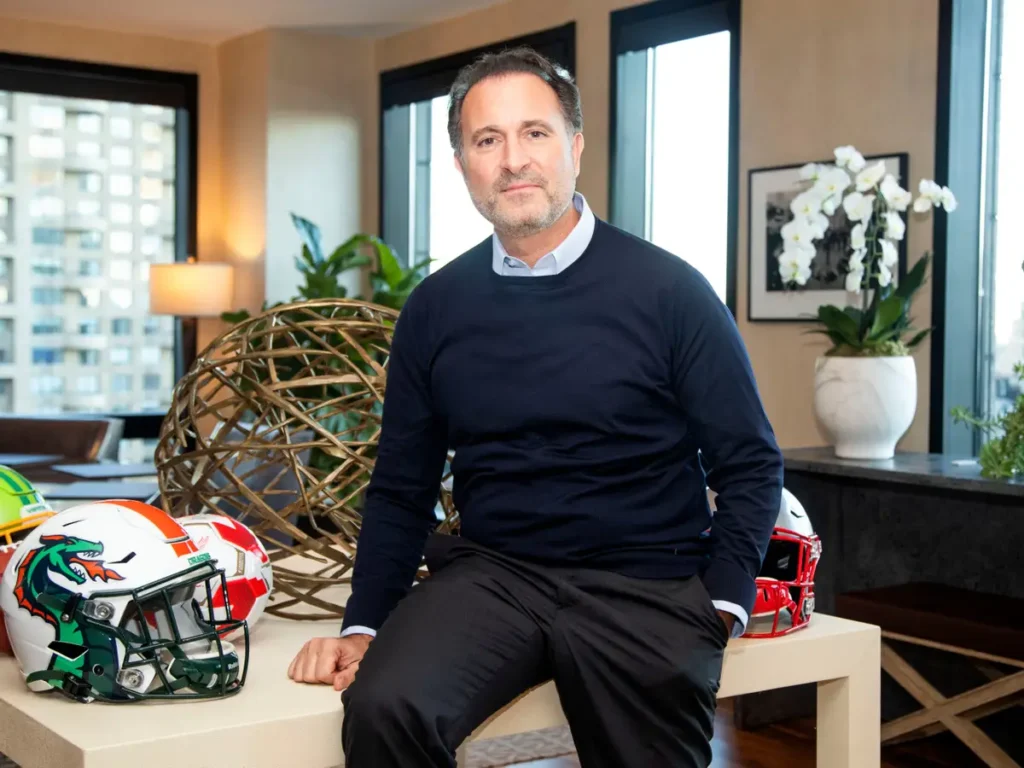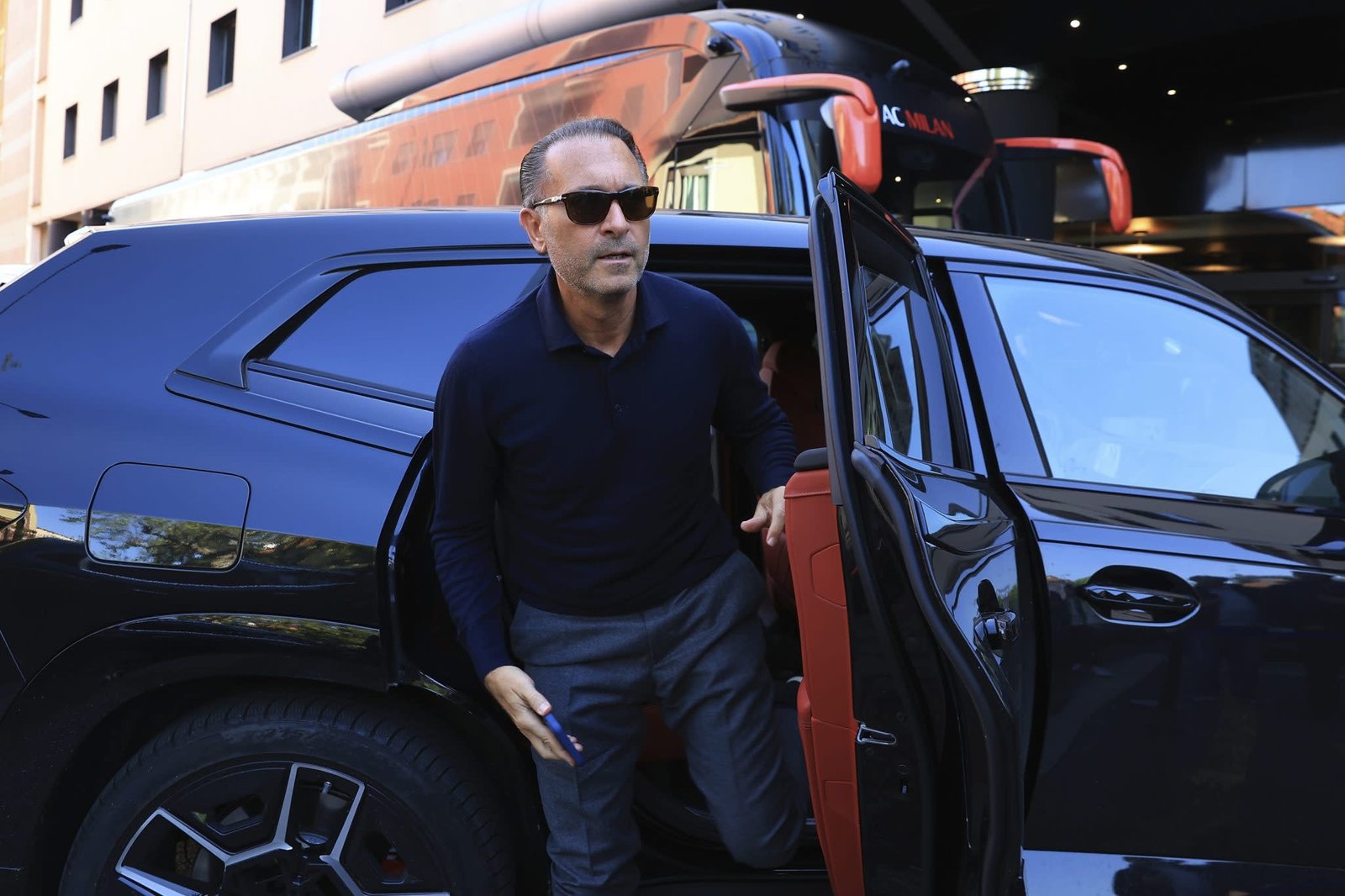On Thursday, the closing of the $8.4 billion merger of Paramount Global and Skydance Media ushered in a new era for the iconic entertainment company, and a new Hollywood mogul: David Ellison, CEO of Paramount, a Skydance Corporation.
Ellison, a film producer and the founder of Skydance, is rapidly becoming a household name amid intense media coverage of the biggest deal in entertainment and media this year. His father and partner in the deal, Oracle cofounder Larry Ellison, has long been famous as one of the richest men in the world. Less well known, however, is the other key figure behind the deal: Gerry Cardinale of the private equity firm RedBird Capital.
With RedBird’s $2 billion stake in Skydance’s $8 billion acquisition of Paramount Global, Cardinale has been a key player in the 19 months of machinations ahead of the transfer of power from Shari Redstone to the Ellisons.
Cost Cuts and Political Moves
Ahead of the closing of the deal, Paramount was already showing signs of private equity style fiscal austerity. Under Redstone, the company pushed through sweeping layoffs and parted ways with multiple top paid executives—and Ellison has promised to find another $2 billion in cost savings.
Paramount also cut loose The Late Show with Stephen Colbert and settled a $16 million lawsuit brought by President Donald Trump over a 60 Minutes interview. After Skydance agreed to “ensure that the new company’s programming embodies a diversity of viewpoints from across the political and ideological spectrum,” and to “root out the bias that has undermined trust in the national news media,” Trump appointed FCC Chairman Brendan Carr approved the deal on July 24.
The moves garnered criticism from those who saw the Trump settlement as an indirect bribe and the cancellation of Colbert, a frequent critic of Trump, as an effort to curry favor with the president.
Billionaire Giving Pledge at 15 Years: Most Signatories Still Far Richer Than When They Joined
Cardinale’s Influence in the New Paramount
With the deal now complete, RedBird holds 22.5% of Paramount’s voting rights, David Ellison will hold 50%, and Larry Ellison will hold the remaining 27.5%. Several alums of RedBird are in the C suite: running the company alongside Ellison are Jeff Shell as President and Andy Gordon as COO.
Cardinale’s rise to Hollywood kingmaker marks a watershed moment for the entertainment industry. Private equity firms have been making moves in Hollywood for some time, but RedBird’s stake in the Paramount deal is the largest to date.
“I really think being from outside that ecosystem or at least one foot in, one foot out is a huge competitive advantage,” he told Fortune in 2024. “I don’t get caught up in the headlines. I don’t get caught up in the emotionalism. I’m not running to go to the Oscars.”

RedBird’s “IP Monetization Engine”
“This same unforgiving strategic discipline made RedBird formidable in sports and entertainment,” Cardinale told Fortune. “We’re an IP monetization engine. That’s what we do.” At Paramount, this will likely mean leveraging the studio’s vast library of movies, shows, and other intellectual property while cutting costs and improving efficiency. “We should be able to make movies for half the cost. We should be able to make original content for half the cost,” he told Puck.
While Paramount is Cardinale’s highest profile investment, it’s far from his first major move. The 58 year old investor began his career at Goldman Sachs before founding RedBird in 2014. The firm now manages $12 billion in assets across six global offices.
Early Career and Sports Ventures
Cardinale grew up in the Philadelphia suburbs, attended Harvard University, and studied at Oxford on a Rhodes scholarship. He began his finance career at Goldman in 1992 and later played a key role in persuading Yankees owner George Steinbrenner to launch the YES regional sports network in 2001. Goldman invested $335 million in the project, which grew from a valuation of about $850 million to more than $3 billion by the time a 49% stake was sold to News Corp in 2012.
This deal cemented Cardinale’s core investment thesis: “While platforms, formats, and technologies shift, the audience attachment to compelling IP persists.”
Expanding the Portfolio
RedBird’s portfolio reflects this strategy. It includes AC Milan, an 11% stake in Fenway Sports Group, and investments in LeBron James’s entertainment company SpringHill, Ben Affleck and Matt Damon’s Artists Equity, and the production company behind Fleabag and Squid Game: The Challenge.
In 2024, RedBird also entered the news business, purchasing the Telegraph and Spectator in the U.K. alongside co investors from the UAE, despite political concerns over foreign influence. The acquisition, valued at over $640 million, went through in May.
Backing Ellison’s Vision
RedBird became the second largest investor in Skydance in 2020, leading a $275 million capital raise, and helped secure an additional $400 million in 2022.
Disney CEO Bob Iger describes Cardinale as someone who understands that “great IP is the equivalent of beachfront property… there’s real value to it, and it’s longterm.”
Challenges Ahead for Paramount
Paramount now faces a declining linear TV sector, heavy debt, fierce streaming competition, and a workforce hit by layoffs—with more cuts likely. The success of the new leadership will depend on applying Cardinale’s IPoptimizing strategy without “eviscerating the creative core.”
With more than 100 years of history, over 1,200 film titles, and distribution rights to thousands more, Paramount is rich in “platform value.”




